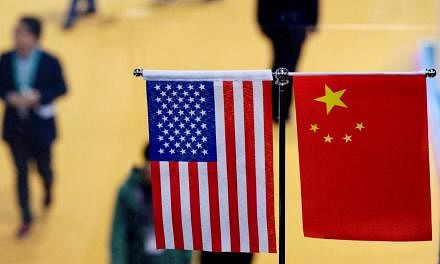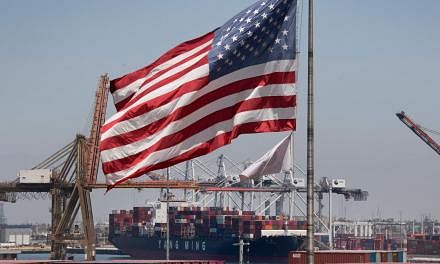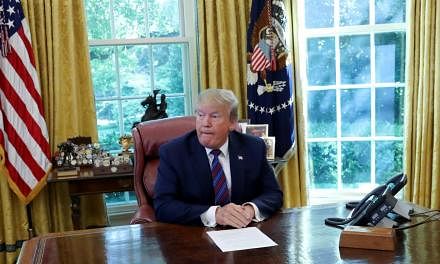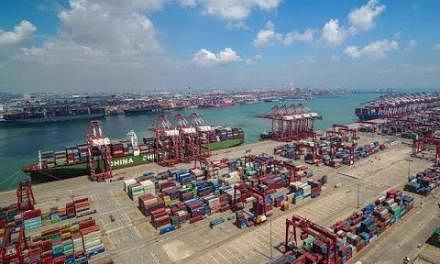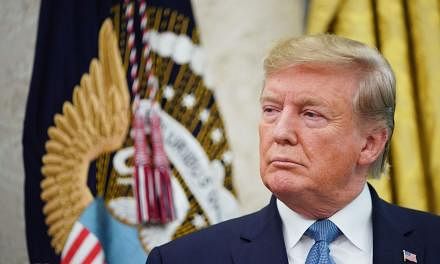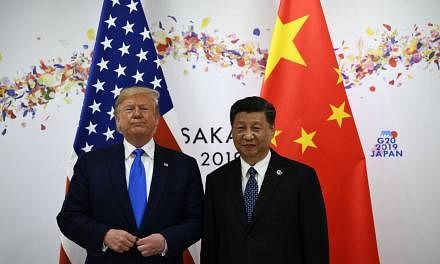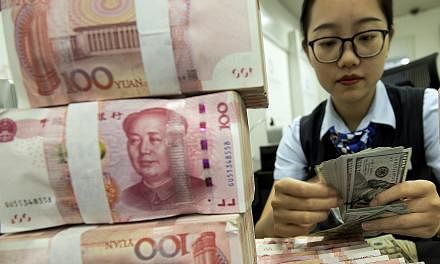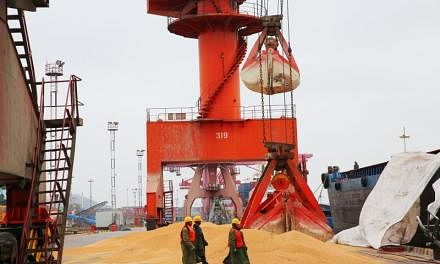SHANGHAI (REUTERS) - Asian shares deepened losses on Tuesday (May 14) amid a fresh deterioration in the US-China tariff war, although comments from US President Donald Trump that he expected trade negotiations to be successful helped stabilise sentiment.
China on Monday announced it would impose higher tariffs on US$60 billion of US goods following Washington's decision last week to hike its own levies on US$200 billion in Chinese imports.
MSCI's broadest index of Asia-Pacific shares outside Japan was down 0.9 per cent in mid-morning trade, after earlier touching its lowest level since Jan 30.
Providing some support for Asian markets were comments from Trump late Monday that trade talks with China "are going to be very successful". That helped lift US stock futures 0.5 per cent, through sentiment remained fragile.
Kerry Craig, global market strategist at JP Morgan Asset Management said that the global sell-off could continue.
"Politicians may be willing to focus less on the market impact until things get more severe, making it doubtful there will be an early resolution to the current breakdown in negotiations simply based on market moves," he said.
"Furthermore, as there isn't a clear schedule for meetings between Chinese and US negotiators, markets are likely to be more volatile."
Broader Asian markets were dragged lower by sagging Chinese shares, with the MSCI China index dropping 1.3 per cent. But China's blue-chip CSI300 index turned higher in volatile trade, gaining 0.3 per cent.
Australian shares lost 1.1 per cent while Japan's Nikkei stock index slid 0.7 per cent.
The US Trade Representative's office on Monday said it planned to hold a public hearing next month on the possibility of imposing duties of up to 25 per cent on a further US$300 billion worth of imports from China.
The tariff escalation has rattled global markets, even as Trump said he would meet with Chinese President Xi Jinping next month.
On Monday, the Dow Jones Industrial Average fell 2.38 per cent to 25,324.99, the S&P 500 lost 2.41 per cent to 2,811.87 and the Nasdaq Composite dropped 3.41 per cent to 7,647.02.
As investors flocked to safe-haven assets, US Treasury yields remained near six-week lows early on Tuesday, though they moved higher following Trump's comments. Benchmark 10-year Treasury notes last yielded 2.4174 per cent compared with a US close of 2.405 per cent on Monday.
The two-year yield, which rises with traders' expectations of higher Fed fund rates, ticked up to 2.1986 per cent from a US close of 2.193 per cent. But data from CME Group continued to show a more than 70 per cent chance of the Fed cutting rates by the end of 2019.
After an earlier inversion, US 10-year yields moved higher than those on three-month Treasury bills. A sustained inversion of this part of the yield curve has preceded every US recession in the past 50 years.
On Monday, some traders were concerned that China, the largest foreign US creditor, could dump Treasuries to counter the Trump administration's hardening trade stance. But most analysts downplayed such a possibility.
"If China did start to (sell Treasuries) it will galvanise both side of politics in the US against China and the Fed would be sent into the market to buy bonds," Greg McKenna, strategist at McKenna Macro said in a note to clients.
"That would expand its balance sheet but it would allow it to neutralise China's efforts to disturb US financial markets. So I doubt they'll try to sell Treasuries."
After earlier falling against the yen, the dollar strengthened 0.25 per cent against the Japanese currency to 109.57.
The single currency was up about 0.1 per cent on the day at US$1.1231, while the dollar index, which tracks the greenback against a basket of six major rivals, was slightly higher at 97.352.
Worries over an escalating trade war had hit commodity markets, but improving sentiment sent US crude 0.1 per cent higher to US$61.11 a barrel. Brent crude was steady at US$70.25 per barrel.
Gold gave up gains after earlier rising amid broader market jitters. Spot gold was down 0.1 per cent at US$1,298.63 per ounce. Bitcoin gained 1.7 per cent to US$7,945.49.


